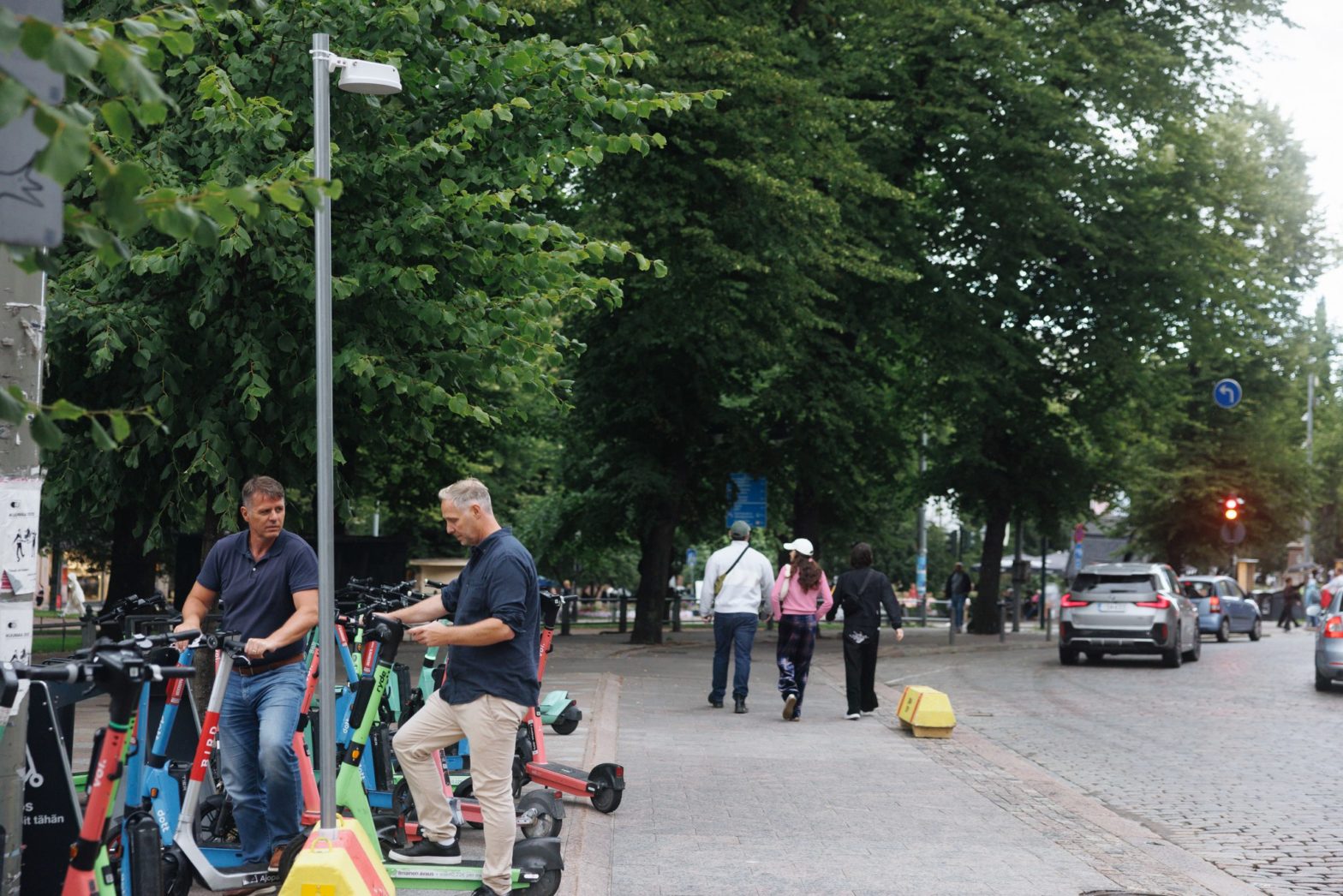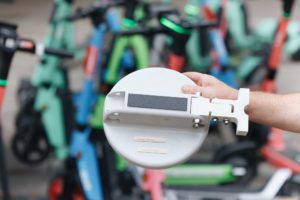
Helsinki tests high-precision e-scooter parking
14 August 2025
by William Thorpe
Helsinki has begun a three-month trial of centimetre-accurate parking technology for shared e-scooters in an effort to improve safety and accessibility in the city centre.
The project, led by Forum Virium Helsinki–the city’s innovation company–is being run in partnership with Norwegian firm Sparkpark AS. It builds on Helsinki’s existing designated e-scooter parking zones, which were introduced to address concerns over pavement obstruction and poor compliance.
The pilot, launched this month, will cover four key districts–Pasila, Kalasatama, Kallio and Esplanadi–including major hubs such as Tripla and Redi shopping centres. Around 20 Sparkpark sensors will be installed above e-scooter parking areas, using patented Bluetooth positioning.
According to Forum Virium project manager Noora Reittu, the system is designed to perform in environments where GPS often fails–such as streets lined with tall buildings or underground facilities–where inaccurate positioning can lead to scooters being left outside marked bays.
“This pilot is a good example of how we in Helsinki strive to find smart solutions to identified challenges,” Reittu said in the project’s announcement. “We aim to test the technology’s functionality in difficult locations and help inform future traffic safety measures.”
Reittu said she looks forward to sharing more insights on the pilot’s impact and key learnings with Cities Today once the trial is complete.

By offering precise location data, the Sparkpark system ensures scooters are parked within marked spaces, helping to prevent clusters forming beyond capacity and reducing obstruction for pedestrians and cyclists. The partners say this not only supports safer, more accessible streets but also helps maintain a more organised and visually appealing public realm.
Sparkpark co-founders Igor Pancevski and Thomas Bråten said the company’s approach focuses on proactive solutions rather than penalties.
“Prioritising the perspective of non-riders by introducing proactive parking solutions–rather than reacting with punitive parking fees for the riders and operators–will be a game-changer for the future of micromobility,” they said.
Data collected during the trial will be limited to e-scooter Bluetooth IDs, ensuring compliance with GDPR. Results are expected to give the city valuable insights into the potential for integrating the technology into wider micromobility management.
Images: Vesa Laitinen / Forum Virium Helsinki













